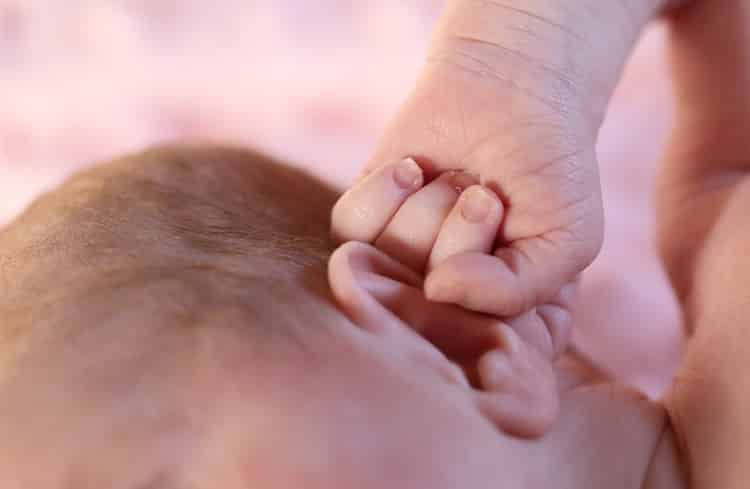Are you expecting a baby soon? Have you heard about hearing screening tests for babies? This article will talk about hearing screening for newborns in Quebec.
The hearing screening test for newborns program is covered by Quebec’s health insurance and has been in place since 2008. Sainte-Justine was designated as the pilot hospital for the program before it went province-wide. Even if there are delays in deploying the program, training for staff has continued to expand to other hospitals to be able to offer this screening service. The goal is to provide it in the 67 delivery and birthing centres to make sure that the service is available to all newborns irrespective of the illness or risk factors identified.
Newborn Deafness Statistics
According to public health statistics, 4-6/1000 babies will have a hearing problem. In Quebec, 1/1000 babies will have permanent deafness, and 90% of these cases won’t have a history of hearing problems in the family.
Hearing problems are not easy to screen just after birth, and it is difficult to identify or diagnose at a very young age. So it’s vital that the screening is completed systematically for every newborn, including those in good health without risk factors.
Types of Deafness
Different types of deafness can be detected. The more severe the hearing problem, the higher the impact will be on the baby’s development.
Four types of deafness:
- Neonatal deafness – deafness present at birth.
- Neurosensorial deafness – this deafness can affect the auditory nerve, internal ear, and how it works, or the brain itself, the portion that interprets hearing called the auditory cortex.
- Transmission deafness – this refers to a conduction disorder in the middle and external ear that prevents sounds from taking the expected path properly.
- Mixed deafness – a mix of different auditory system problems.
Why screen for deafness?

Why screen newborns for deafness?
The answer is straightforward, because the sooner we know, the faster we can act and limit the negative impacts on the general development of affected babies.
Children detected with hearing problems will benefit significantly from getting care and services based on their situation. This will ensure a better quality of life by improving their learning process across the board.
Based on the Quebec deafness screening program’s protocol, the goal is to complete the test before the newborn reaches 1 month. Always use the corrected age if the baby was born prematurely. Ideally, it will be done during their stay in the maternity ward, but never during the first 24 hours of life. The baby may still have liquid or debris in their auditory canals, which can affect the results. Also, the results of a first test may be incomplete. In this case, the test will be repeated before the discharge. If the release occurs too quickly, an appointment will be given to the parents at an external screening centre to redo the test within the baby’s first month of life. But I want to reassure you, even if you have to repeat specific tests, this doesn’t necessarily mean that the tests will be negative!
Screening is always completed with parental consent. A form has to be signed after having been given the information about the program to get authorisation to complete the screening test.
Benefits of early deafness detection for the baby
There are many benefits of knowing a child’s auditory condition early. Here are some that justify the screening process:
- Fast diagnosis. By completing the tests in the maternity ward or within the first month of life, babies can be referred for more tests if they had inconclusive results. The tests will take place before 3 months of age, and then a diagnosis will be made.
- Early, effective and adapted intervention plan can allow the child to be handled by the health network. Specialists can help minimise the impact of the hearing problem. Audiologists, speech therapists, ENT, family doctor, nurse, hearing aids, etc.…
- An adapted device might be necessary during their rehabilitation, which will be found in the intervention plan at the right time, right device and proper monitoring.
- Early language stimulation will be used to maximise the baby’s cognitive development, as language is significantly influenced by the ability to hear.
- Reinforcement of the school learning process, such as reading and writing, will also be planned for the right time. More medium and long term, but essential to ensure academic success.
- Social inclusion for their development as part of the community, to stimulate communications with others and establish relationships with those around them. This will help them enter the workforce later in life.
Tests used during the Quebec newborn deafness screening process
The Quebec newborn deafness screening program uses two specific tests as part of a first stage. These tests are often completed by a maternity or neonatology nurse who has been previously trained.
- The otoacoustic emissions test, also known as EOA-A. For a baby born at term, healthy, with no known risk factors, this is the first test for both their ears. If the result is positive, it means that everything is excellent, and the screening stops here. If the result is incomplete, the test will be redone over a short period, ideally before being released from the hospital. After the second attempt, if the results are positive, the screening stops. If the results are still abnormal or inconclusive, a second test will be completed, auditory evoked potentials.
- The brainstem auditory evoked potentials (BAEPs). A baby born at term, in good health with no risk factors which has incomplete or inconclusive results during the EOA-A, they will be given a BAEPs test. It’s more specific to make a diagnosis and develop an intervention plan based on the results. Typically, a period of about 14 days separates the two tests, and the BAEPs will be completed on one or both ears, depending on the previous results.
For a newborn who has risk factors for hearing problems (see the list below), the screening program uses a different procedure. Specifically, the BEAPs test will be applied first following their birth. If the results are good, great! Since the baby is at risk, they will be monitored by an audiologist for a few months with follow-up tests during their first year (usually at 8 and 10 months). If the results remain incomplete, the parents will be asked to come back with their baby to do another BEAPs test. If the second result is incomplete or abnormal, the baby will be referred to a specialist, who will confirm the diagnosis, and they will be followed based on the identified problem.
These two tests send low-intensity short regular sound stimulations using earphones placed directly in the baby’s auditory canal. Physiological responses, which are expected in a normal situation, are registered. In fact, when the sounds meet the cells responsible for picking up these sounds, they should contract and send a sort of echo to the device. This is what is measured to see if the child’s physiological response to the stimulation is as expected.
These tests won’t cause the baby pain, are risk-free and take place when they sleep. They are unaware that the test is taking place.
If the baby is born prematurely, or if they are at risk for hearing problems, the BEAPs test will be used. It’s more precise to evaluate the child’s condition.
Newborn Deafness Risk Factors
Even inf the screening program targets all newborns, it seems that some are at a higher risk of hearing problems or deafness.
Here are a few risks:
- Some infections contracted by the mother during pregnancy, such as toxoplasmosis, rubella and cytomegalovirus (CMV). These infections can be transmitted to the baby in utero and affect their auditory system or lead to malformations of the auditory system.
- Some infections contracted by the baby during the neonatal period, such as meningitis.
- Babies born very preterm and extremely preterm in intensive care. They are at a higher risk of hearing problems and deafness given their degree of prematurity.
- Family history of deafness.
- Syndromes that can affect hearing.
As you can see, the newborn deafness screening protocol can change the life of a baby who has this type of problem. Early detection of the baby’s condition can lead to earlier care by the health network. We always want to maximise our children’s potential as a parent, and these tests can help.
If you have questions about your family history or worry about your future baby’s hearing capacity, talk to your doctor. Even if the screening is not offered where you are going to give birth, the doctor can plan for deafness screening externally.
I hope this information helps parents prepare for the arrival of their baby!
To learn more about the topic, read these articles:
- Is your baby tanned? Jaundice
- Caring for the baby after birth
Talk soon,
Marie
The Baby Expert


